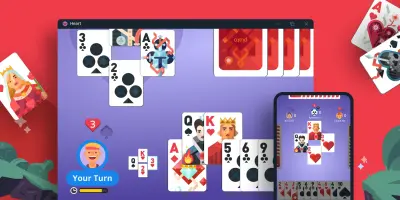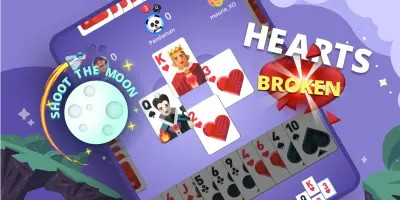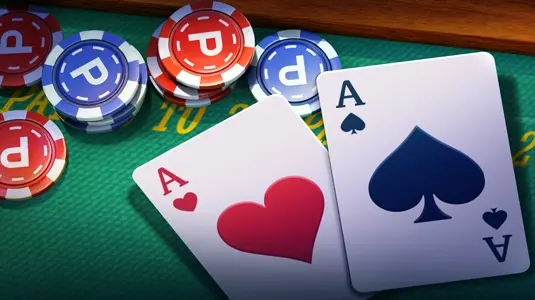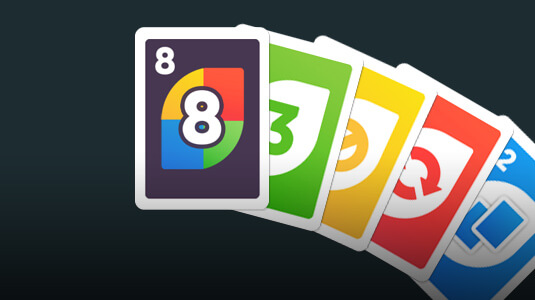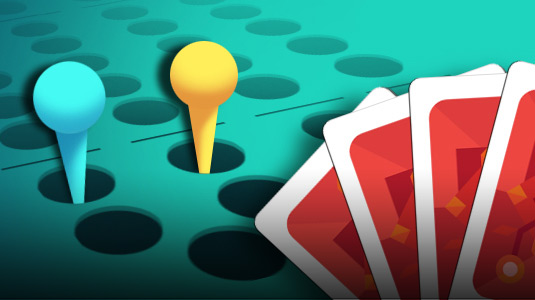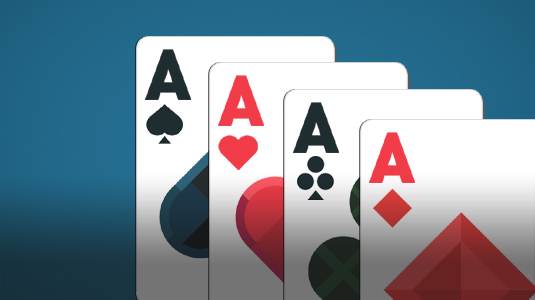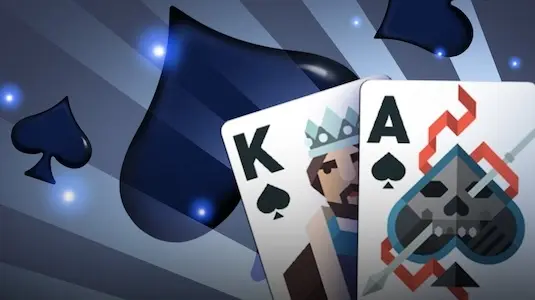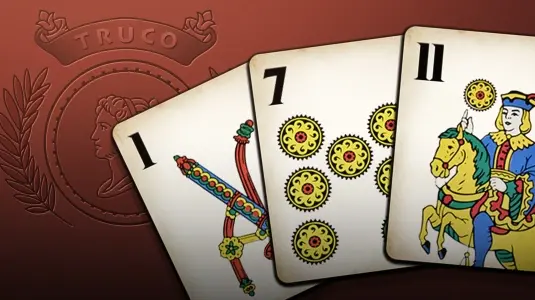Play Hearts online with friends for free
Passing Tips
Since your first objective is to avoid taking the queen of spades, pass the ace, king, and/or queen of spades if you hold fewer than four spades; except that if you're passing right, you only need to pass the queen--not the king or ace--as long as you have at least one low spade.
Retain very low cards (twos and threes) in all suits, and don't worry about holding high cards in long suits in which you also hold some low cards. Get rid of high and middle cards in short suits where you have no low ones.
Do not pass your three highest hearts, which may give someone the opportunity to shoot. For the same reason, never pass the singleton ace of hearts. With a long, strong heart holding that includes some low hearts, pass only your second-highest heart (or none, if you have a chance to shoot). Be willing to take a heart trick, and keep one high heart, plus some low ones if you have them.
Never pass spades lower than the queen unless you have an unusual hand where you intend to shoot the moon. If you do hope to shoot, keep your high cards in all suits--but also keep your low cards if possible, so that you can adjust your strategy and escape without taking many tricks if the shoot becomes impossible.
Tactics
The usual strategy in playing a hand is:
- Drive out the queen of spades. If possible, give it to person who's leading (i.e. has the low score) and avoid giving it to the person with the high score--but if you're low score, you want to try to drive someone over the top so you win.
- Make sure no one can shoot by giving hearts to two different players. If necessary, take a heart trick yourself.
- If the jack of diamonds option is being used, try to get rid of losers so you can take the last few tricks, capturing the jack (even if it means taking several hearts as well).
Keeping Track of Cards
Try to keep track of how many cards have been played in each suit. Be aware of whether you have a definite exit card in a suit--for example, if you have the 4 and the 3 has been played, your four can still win a trick if all the remaining diamonds, including the 2, are in one opponent's hand.
This is quite likely if three rounds of diamonds have been played, but extremely unlikely if only one round has been played.
Top Ranked Winners
Can I play online?
Yes. Install the Plato app on iOS, Android, or macOS to play the full catalog with friends or matchmade opponents. You can also play Ocho online in your web browser — no install needed.
Can I play with friends?
Yep. Tap Create Private Game, then share the invite link or invite from your contacts. When they tap Accept, they're seated at your table.
Is it free?
Yes — free to play and ad-free. If you buy something, it's for looks (themes, profile flair), not power.
Is it fair?
Shuffles, deals, dice, and timers run on Plato servers, not your device. Everyone plays by the same rules and no one can peek at hidden information.
Is it safe?
You can block and report from profiles or chat. Public spaces use filters and human review. Some rooms use Chat Pass to deter spam, and privacy controls let you limit who sees you online.
Live vs. turn-based: what’s the difference?
Both are turn-taking; the difference is the clock. Live uses short timers for quick back-and-forth. Turn-based gives you longer — often up to 24 hours per move in games like Chess — so you can play at your pace.
